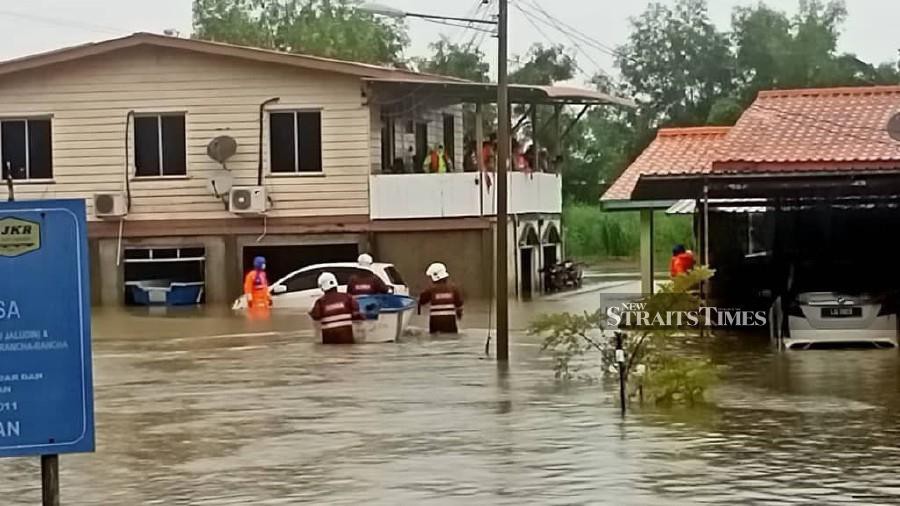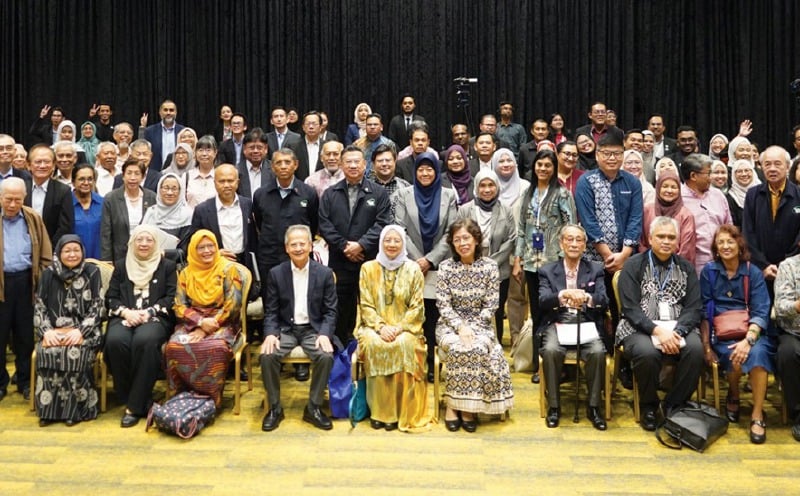The famous American architect, inventor and futurist Richard Buckminster Fuller was quoted as saying: "There is one outstandingly important fact regarding Spaceship Earth, and that is that no instruction book came with it."
The view that the planet is a "spaceship" without an "instruction manual" invites the thinking that mankind can simply exploit the planet's finite resources.
Perhaps, it is because of this thinking that led to the environmental predicament that we are in today, particularly climate change.
The Intergovernmental Panel on Climate Change (IPCC) of the United Nations is given the task of assessing the science related to climate change.
One of it's working groups recently released a report entitled "Climate Change 2021: The Physical Science Basis", which will be a part of the more comprehensive Sixth Assessment Report to be published by the IPCC expected next year.
The report is considered to be the most comprehensive, based on more than 14,000 studies on the physical science of climate change. It certainly paints a bleak future for the planet.
The report states that the current temperature is already 1.1 degrees higher compared with the 19th century, whereby humans are no longer able to stop global warming from becoming more intense in the next three decades.
If efforts to stop carbon emission from increasing fail, then the global average temperature will continue to rise by as high as 4°C.
The past decade has also been the hottest experienced in 125,000 years. The amount of carbon dioxide released since 2013 has also contributed to the planet having the highest concentration of atmospheric carbon dioxide in at least two million years.
In the past century, the oceans have risen by over 20cm, and continue to rise by another 90cm, in part due to ice sheets in Greenland and Antarctica destabilising as well as unprecedented melting and receding of glaciers.
Heatwaves have become significantly hotter in the past seven decades. Today, a heatwave can be expected every 10 years on average.
At 1.5°C of global warming, there will be a hotter heatwave every five years. Expect annual heatwaves if the average global warming stands at 4°C
With every 1°C in global temperature rise, rainfall will increase by seven per cent, resulting in more flooding across the globe.
Malaysia will be impacted by global warming, although we may not feel as such primarily because of relatively uniform temperatures all year.
However, by 2050, Malaysia is projected to be hotter by 1.5°C and also forecasted to experience more torrential rainfall with more flooding.
With the increasing ocean level, coastal areas are the most vulnerable. Among the effects are land loss, soil erosion, coral reef destruction as well as depletion of fisheries resources.
It must be understood that many effects of climate change are irreversible, mostly by our own doing, which can be traced back to the First Industrial Revolution in the 18th century.
At best, we can mitigate them by undertaking certain actions now. Inaction would certainly be catastrophic.
This November, the 26th United Nations Climate Change Conference of the Parties will be held in Glasgow, Scotland, with the hope to accelerate action towards achieving the goals set by the 2015 Paris Agreement and the UN Framework Convention on Climate Change.
Malaysia is not considered a major greenhouse gas emitter but it should prioritise planning for a more sustainable climate-resilient socioeconomic strategy.
Mitigation measures must be in place consistent with the 2015 Paris Agreement. Correcting actions must be taken.
While there may not be a specific manual to tackle environmental degradation and climate change, Muslims firmly believe that Allah has given us guidance in the form of the Quran and Sunnah of Prophet Muhammad.
It comes in many forms such as exhortations, warnings, examples and principles, all of which can be translated into meaningful actions.
The recent announcement by the Environment and Water Ministry on the International Voluntary Carbon Markets and Domestic Emissions Trading Scheme is commendable, in line with the aim of ensuring socioeconomic growth in a sustainable manner without impacting the environment and the climate.
If measures to reduce our carbon footprint are successful, then they can effectively contribute towards mitigating the effects of climate change.
The writer is director, Centre for Science and Environment Studies, Institute of Islamic Understanding Malaysia (IKIM)
The views expressed in this article are the author's own and do not necessarily reflect those of the New Straits Times
















